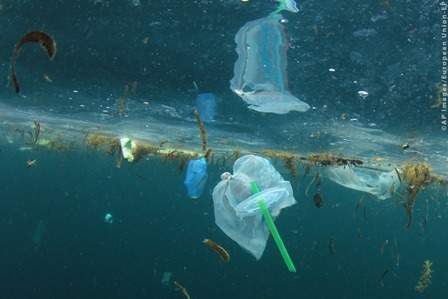The European Parliament has voted to ban a range of single-use plastic items including plates, cutlery, straws, balloon sticks or cotton buds to reduce plastic litter on sea shores and in oceans.

Image: Parliament wants to forbid throwaway plastics from 2021. Photo: courtesy of AP images/European Union –EP.
Under the plans, 10 single-use plastic products most widely found on European shores would be banned by 2021 and other plastics like beverage bottles must be collected separately and recycled at a rate of 90% by 2025.
The list of plastics proposed to be banned include products made of oxo-degradable plastics, such as bags or packaging and fast-food containers made of expanded polystyrene.
Plans also include the reduction of the consumption of various other items, for which no alternative exists, by member states by least 25% by 2025. It includes single-use burger boxes, sandwich boxes or food containers for fruits, vegetables, desserts or ice creams.
Member states will be required to draft national plans for supporting the use of products suitable for various uses, as well as re-using and recycling.
Member states should also make sure that about 50% of lost or abandoned fishing gear featuring plastic is collected per year, with a recycling target of at least 15% by 2025.
Other measures proposed include consumption reduction targets of 25% by 2025 for food containers and 50% by 2025 for cigarette filters that feature plastic.
According to the European Commission, over 80% of marine litter is plastics. The products covered by the restrictions make up 70% of all marine litter items.
Belgian Member of the European Parliament Frédérique Ries said: “We have adopted the most ambitious legislation against single-use plastics. It is up to us now to stay the course in the upcoming negotiations with the Council, due to start as early as November.
“Today’s vote paves the way to a forthcoming and ambitious directive. It is essential in order to protect the marine environment and reduce the costs of environmental damage attributed to plastic pollution in Europe, estimated at 22 billion euros by 2030.”
The European Council will now need to vote on its position before Parliament can commence negotiations with member states.
